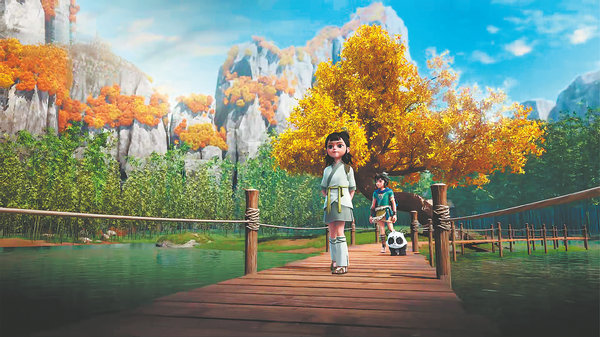A technicolor twist on Yu the Great
Hit animated series explores childhood of larger-than-life character from ancient Chinese classic, Xu Fan reports.
By Xu Fan | CHINA DAILY | Updated: 2024-04-09 07:48

The 18-volume classic is believed to have been compiled between the Warring States Period (475-221 BC) and the early Han Dynasty (206 BC-AD 220), and encompasses a wide array of subjects, including myths and medicine, as well as information about animals, plants, oceans, and astronomy.
The initial challenge facing the team was deciding which figure from the sprawling book to choose as the lead character for the animated series.
Cao says that they originally considered some of its most renowned figures, including Houyi, the mythological hero who shoots down nine of 10 sons of the Heavenly King to save the Earth from scorching; Kuafu, a giant with the ambitious goal of racing against the sun; and Jingwei, the daughter of a god who transforms into a bird and tries to fill the sea with twigs and stones to avenge her drowning in the sea.
After holding meetings with screenwriters and experts specializing in mythology and folklore, Cao says they finally chose Dayu because despite the mix of actual and fictional content, the sheer number of depictions and records about him suggest that he was an actual historical figure who exerted a massive influence on ancient China.
"As a human hero, who figures prominently in the origin of Chinese civilization, Dayu might be more relatable to a modern audience, especially youngsters," Cao continues.
While the author of the Shan Hai Jing remains shrouded in mystery, the director says that certain scholars speculate that Dayu himself might have orchestrated the compilation of the ancient masterpiece, recorded it originally with an oral tradition, and got it passed down later in written forms.
























